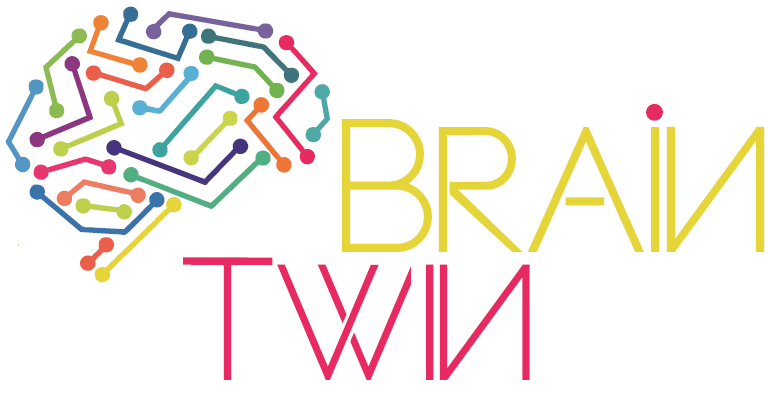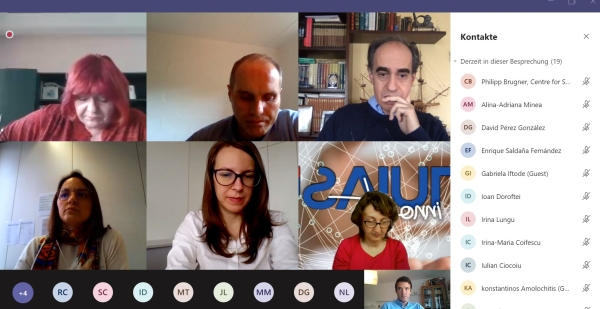On September 24, the BrainTwin project was successfully kicked off
BrainTwin – Development of a world-level neuroengineering research centre by European Twinning is a Horizon 2020-funded Twinning action. Twinning actions, generally speaking, aim to bringing together partners with similar institutional profiles to foster networking, faciliate knowledge transfer and exchange expertise. Usually there is one target beneficiary in twinning actions and project activities are tailored to the needs of this respective institution.
The virtual kick-off meeting on September 24 brought together around 20 representatives, including the five project partners and the assigned project officer on behalf of the European Commission. It’s main objective was to familiarise everyone with the project outline and the roadmap for the next three years. Even if attending a full-day virtual event is sometimes laborious and challenging in terms of concentration, the consortium was in complete agreement that the spirit and commitment shown by all was very positive. Regarding the first events that were planned as physical events at the time the project was submitted, the consortium arrived at the conclusion that these should take place as online events only.
The targeted beneficiary in BrainTwin is the Technical University Gheorghe Asachi of Iasi in Romania (TUIASI), also the project’s coordinator. One of TUIASI’s scientific priorities is in the field of neuroengineering. Neuroengineering is a discipline with high potential for the future that uses engineering techniques to study, restore, replace, or enhance neural systems. It comprises the application of engineering principles and techniques to the field of neurosciences. Through the collaboration with partners from Germany (Fraunhofer Society, SEZ), Spain (University of Salamanca) and Austria (ZSI), the TUIASI both aims to gain scientific excellence in the field of neuroengineering and to build better capacities in attracting international competitive research funding, in particular from the EU.
Over the next three years, BrainTwin will work on enhancing the scientific and technological capacities of TUIASI by several specific actions. Firstly, by exchanging knowledge with a focus on attracting early stage researchers in Romania to learn from the project’s internationally composed consortium. Secondly, by strengthening the research management skills of TUIASI’s staff through providing hands-on assistance and advice in how to manage large EU grants. And thirdly by increasing the visibility of the Romanian neuroengineering research landscape both nationally and internationally in order to better compete for EU research funding in the long term.

